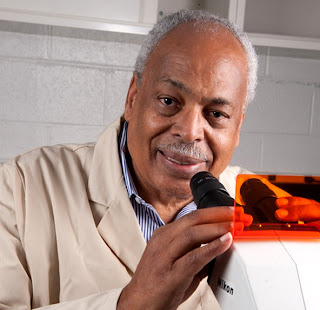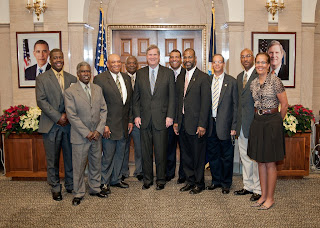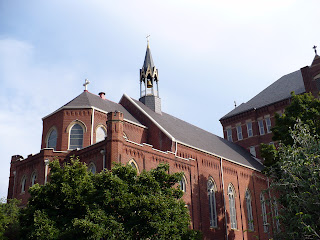Luther E. Smith Jr., professor of church and community at Candler School of Theology, was honored at the 14th annual Black Religious Scholars Group (BRSG) Consultation in November. Smith was named the 2011 BRSG Distinguished Religious Scholar at the event, held in San Francisco at the Church for the Fellowship of All Peoples, which theologian Howard Thurman co-founded. Smith has spent his entire career studying Thurman, whose legacy was also honored at the consultation.
“Each year, the BRSG recognizes a preeminent African American religious scholar who exemplifies faithfulness to our shared vocational call as scholars, theologians, preachers and community leaders,” said Dr. Juan M. Floyd-Thomas, co-founder and executive board member of BRSG. “In this spirit, our organization was especially eager to celebrate the far-reaching influence of Luther Smith. His pioneering scholarship and teaching on the life and legacy of Howard Thurman has inspired greater understanding of black religious thought and praxis on local, national and global levels.”
Smith undertook the first major critical study of Thurman’s thought with his first book, “Howard Thurman: The Mystic as Prophet,” which was based on his doctoral dissertation. He is the editor of “Howard Thurman: Essential Writings” and co-editor of “The Living Wisdom of Howard Thurman: A Visionary of Our Time,” six compact disc recordings of Howard Thurman’s sermons, lectures and meditations. He also serves as senior consulting editor to the Howard Thurman Papers Project. Smith has been a member of Candler’s faculty since 1979.
“I was very moved by this honor,” says Smith. “My appreciation runs two ways. First, I’m grateful for the personal and professional affirmation of my work. But, second, I’m also grateful for the recognition of Howard Thurman, who has been the subject of my research for more than forty years. These scholars are affirming Thurman’s significance to the future of the black church.”
Smith helped found Atlanta’s International Community School, which has a mission of educational excellence for children who have experienced the traumas of war and violence. He is also a founder of Georgia’s Interfaith Children’s Movement, which educates, mobilizes and networks faith communities in being advocates for all children.
“Thurman taught us that we have the capacity to nurture community across the boundaries of faith and ethnicity, which has affected how I’ve been called to work in the world,” says Smith. “Thurman employed the idea that we can maintain our grounding in our own religious tradition while being instructed in other religious traditions. He calls us to listen with a different kind of attentiveness, so that we move beyond just tolerance of others to appreciation and respect for others.”
Emory University - 1531 Dickey Drive, Atlanta, Georgia, 30322 USA 404.727.6326. News Release: Dec. 21, 2011 By: Molly Edmonds. Media Contact: Laurel Hanna: 404.727.4481


































